2016年1月11日 星期一
week 17 西概

Delilah:a character in the Hebrew bible Book of Judges, where she is the "woman in the valley of Sorek" whom Samson loved, and who was his downfall. a fatal woman.
Fate is what happens to you and out of your control
Destiny is what results from your actions.
Paradise Lost:an epic poem in blank verse by the 17th-century English poet John Milton.The poem concerns the Biblical story of the Fall of Man: the temptation of Adam and Eve by the fallen angel Satan and their expulsion from the Garden of Eden. Milton's purpose, stated in Book I, is to "justify the ways of God to men"
Satan= Lucifer
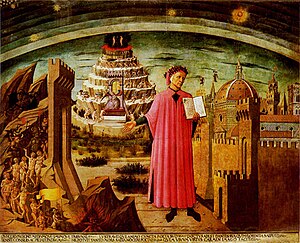
Divine Comedy:is an epic poem by Dante Alighieri, begun c. 1308 and completed 1320, a year before his death in 1321. It is widely considered the preeminent work of Italian literature and is seen as one of the greatest works of world literature. The poem's imaginative vision of the afterlife is representative of the medieval world-view as it had developed in the Western Church by the 14th century. It helped establish the Tuscan language, in which it is written, as the standardized Italian language. It is divided into three parts: Inferno, Purgatorio, and Paradiso.
Moses: a prophet in Abrahamic religions. According to the Hebrew Bible, he was a former Egyptian prince who later in life became a religious leader and lawgiver, to whom the authorship of the Torah is traditionally attributed. The historical consensus is that Moses is not an historical figure. Also called Moshe Rabbenu in Hebrew, he is the most important prophet in Judaism. He is also an important prophet in Christianity, Islam, Baha'ism as well as a number of other faiths.
Passover:an important, biblically derived Jewish festival. The Jewish people celebrate Passover as a commemoration of their liberation by God from slavery in Egypt and their freedom as a nation under the leadership of Moses
Ten Commandments:a set of commandments which the Bible describes as having been given to the Israelites by God at biblical Mount Sinai
Behold, I stand at the door, and knock: if any man hear my voice, and open the door, I will come in to him, and will sup with him, and he with me.
week 16 西概
Jonah or Jonas:is the name given in the Hebrew Bible to a prophet of the northern kingdom of Israel in about the 8th century BC. He is the eponymous central character in the Book of Jonah, famous for being swallowed by a fish or a whale, depending on translation.
Meaning of The Number 3 in the Bible
The meaning of this number derives from the fact that it is the first of four spiritually perfect numerals (the others being 7, 10 and 12). For example, Jesus rose again after three days he died.
Psalm 23:1-6 King James Version (KJV)
23:1 The Lord is my shepherd; I shall not want.Bush had quote it in his 9/11 address to the nation=>click to the speech
2 He maketh me to lie down in green pastures: he leadeth me beside the still waters.
3 He restoreth my soul: he leadeth me in the paths of righteousness for his name's sake.
4 Yea, though I walk through the valley of the shadow of death, I will fear no evil: for thou art with me; thy rod and thy staff they comfort me.
5 Thou preparest a table before me in the presence of mine enemies: thou anointest my head with oil; my cup runneth over.
6 Surely goodness and mercy shall follow me all the days of my life: and I will dwell in the house of the Lord for ever.
Protestant:a form of Christian faith and practice which originated with the Protestant Reformation, a movement against what its followers considered to be errors in the Roman Catholic Church. It is one of the three major divisions of Christendom, together with Roman Catholicism and Eastern Orthodoxy:東正教徒
Catholic :a member of the Roman Catholic Church.
Christian: a person who adheres to Christianity, an Abrahamic, monotheistic religion based on the life and teachings of Jesus Christ.
WASP:White Anglo-Saxon Protestant.An informal, sometimes disparaging term for a group of high-status and influential White Americans of English Protestant ancestry
argue about WASP in Stuart little【click!】

fall:1. suddenly go down onto the ground or towards the ground without intending to or by accident
2.often used in place names to mean a very wide waterfall, often made of many separate waterfalls

Fall of man:In Christian theology, the fall of man, or the fall, is a term used to describe the transition of the first man and woman from a state of innocent obedience to God to a state of guilty disobedience.
Cain and Abel :according to the Book of Genesis, they were two sons of Adam and Eve. Cain is described as a crop farmer and his younger brother Abel as a shepherd. Cain was the first human born and Abel was the first human to die. Cain committed the first murder by killing Abel. Interpretations of Genesis 4 by ancient and modern commentators have typically assumed that the motives were jealousy and anger
God asks Cain, "Where is Abel thy brother?" Cain replies, "I know not: am I my brother's keeper?"
the sequence of the god made the world:light > Firmament > Dry Ground > Sun, Moon, Stars > Fish and Birds > Creatures on Land
Noah's Ark:the vessel in the Genesis flood narrative (Genesis chapters 6–9) by which God spares Noah, his family, and a remnant of all the world's animals from the flood
frag-:broken
fragment:a part broken off or detached
mor-、 mort-:die
ex:mortal、morgue
labor :the physical effort and periodic uterine contractions of childbirth.
week 15 西概
12/24: Christmas eve
12/25: Christmas
12/26:Boxing Day (a holiday traditionally celebrated the weekday or Saturday following Christmas Day)

A Christmas Carol, is a novella by Charles Dickens, tells the story of a bitter old miser named Ebenezer Scrooge(also means stingy) and his transformation into a gentler, kindlier man after visitations by the ghost of his former business partner Jacob Marley and the Ghosts of Christmas Past, Present and Yet to Come.
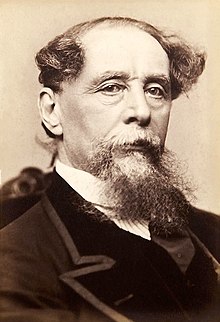
Charles John Huffam Dickens:an English writer and social critic. He created some of the world's best-known fictional characters and is regarded as the greatest novelist of the Victorian era.His works enjoyed unprecedented popularity during his lifetime, and by the twentieth century critics and scholars had recognised him as a literary genius. His novels and short stories enjoy lasting popularity.
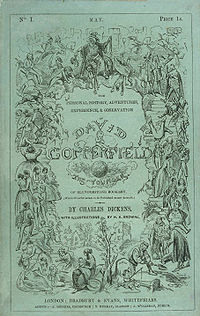
David Copperfield, many elements of the novel follow events in Charles Dickens' own life, and it is probably the most autobiographical of his novels.
Have Yourself A Merry Little Christmas
the song is from the old movie "Meet me in St.Louis"
The Wright brothers exhibits their airplane at the St. Louis World Fair.
Up in the Air=> means undecided about someone or something; uncertain about someone or something.
 the name of this film is refereed to the feeling of the hero.
the name of this film is refereed to the feeling of the hero.
Sistine Chapel:

[Bible]
The Bible (from Koine Greek, "the books") is a collection of texts sacred in Judaism and Christianity. It is a collection of scriptures written at different times by different authors in different locations. Jews and Christians consider the books of the Bible to be a product of divine inspiration or an authoritative record of the relationship between God and humans.
it has two part in Bible - Hebrew Bible and Christian Bibles
Hebrew Bible was written in Hebrew
Christian Bibles was written in Greek

Saint Joseph: a figure in the Gospels, the husband of the Blessed Virgin Mary, the mother of Jesus, and is venerated as Saint Joseph in the Catholic Church, Eastern Orthodox Church, Oriental Orthodox Church, Anglican Communion, Lutheranism and Methodism

The Magi, also referred to as the (Three) Wise Men or (Three) Kings, were, in the Gospel of Matthew and Christian tradition, a group of distinguished foreigners who visited Jesus after his birth, bearing gifts of gold, frankincense and myrrh. The three gifts had a spiritual meaning: gold as a symbol of kingship on earth, frankincense (an incense) as a symbol of deity, and myrrh (an embalming oil) as a symbol of death.
3 is an important number in Bible
1. Jesus public ministry lasts three years
2. They believe in Trinity, meaning one God in three persons:
God the Father, God the Son (Jesus), and God the Holy Spirit
 Trinity
Trinity
The crucifixion of Jesus:Occurred during the 1st century AD, most probably between the years 30 and 33. Jesus, whom Christians believe to be the Son of God as well as the Messiah, was arrested, tried, and sentenced by Pontius Pilate to be scourged, and finally crucified by the Romans


Binding of Isaac:also known as, the Akedah or Aqedah, is a story from the Hebrew Bible in which God asks Abraham to sacrifice his son, Isaac, on Mount Moriah.

Adam and Eve, according to the creation myths of the Abrahamic religions, were the first man and woman.
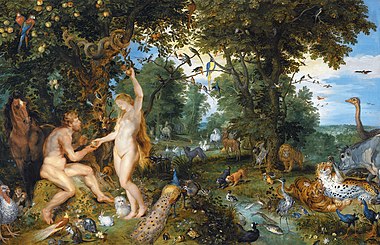
original sin:God fashions Adam from dust and places him in the Garden of Eden. Adam is told that he can till the ground and eat freely of all the trees in the garden, except for a tree of the knowledge of good and evil, of which he is prohibited from eating. Subsequently, Eve is created from one of Adam's ribs to be Adam's companion. However, a serpent tricks Eve into eating fruit from the forbidden tree, and she gives some of the fruit to Adam. God curses the serpent and the ground. God prophetically tells the woman and the man what will be the consequences of their sin of disobeying God.

fig leaf:widely used figuratively to convey the covering up of an act or an object that is embarrassing or distasteful with something of innocuous appearance, a metaphorical reference to the Biblical Book of Genesis, in which Adam and Eve used fig leaves to cover their nudity after eating the fruit from the tree of the knowledge of good and evil
secular = vulgar: not pertaining to or connected with religion<=> religion
gay: having or showing a merry, lively mood
gen-:birth and beginning
12/25: Christmas
12/26:Boxing Day (a holiday traditionally celebrated the weekday or Saturday following Christmas Day)
A Christmas Carol, is a novella by Charles Dickens, tells the story of a bitter old miser named Ebenezer Scrooge(also means stingy) and his transformation into a gentler, kindlier man after visitations by the ghost of his former business partner Jacob Marley and the Ghosts of Christmas Past, Present and Yet to Come.

Charles John Huffam Dickens:an English writer and social critic. He created some of the world's best-known fictional characters and is regarded as the greatest novelist of the Victorian era.His works enjoyed unprecedented popularity during his lifetime, and by the twentieth century critics and scholars had recognised him as a literary genius. His novels and short stories enjoy lasting popularity.

David Copperfield, many elements of the novel follow events in Charles Dickens' own life, and it is probably the most autobiographical of his novels.
Have Yourself A Merry Little Christmas
the song is from the old movie "Meet me in St.Louis"
The Wright brothers exhibits their airplane at the St. Louis World Fair.
Up in the Air=> means undecided about someone or something; uncertain about someone or something.
 the name of this film is refereed to the feeling of the hero.
the name of this film is refereed to the feeling of the hero.Sistine Chapel:
| click here |
[Bible]
The Bible (from Koine Greek, "the books") is a collection of texts sacred in Judaism and Christianity. It is a collection of scriptures written at different times by different authors in different locations. Jews and Christians consider the books of the Bible to be a product of divine inspiration or an authoritative record of the relationship between God and humans.
it has two part in Bible - Hebrew Bible and Christian Bibles
Hebrew Bible was written in Hebrew
Christian Bibles was written in Greek

Saint Joseph: a figure in the Gospels, the husband of the Blessed Virgin Mary, the mother of Jesus, and is venerated as Saint Joseph in the Catholic Church, Eastern Orthodox Church, Oriental Orthodox Church, Anglican Communion, Lutheranism and Methodism

The Magi, also referred to as the (Three) Wise Men or (Three) Kings, were, in the Gospel of Matthew and Christian tradition, a group of distinguished foreigners who visited Jesus after his birth, bearing gifts of gold, frankincense and myrrh. The three gifts had a spiritual meaning: gold as a symbol of kingship on earth, frankincense (an incense) as a symbol of deity, and myrrh (an embalming oil) as a symbol of death.
3 is an important number in Bible
1. Jesus public ministry lasts three years
2. They believe in Trinity, meaning one God in three persons:
God the Father, God the Son (Jesus), and God the Holy Spirit
 Trinity
TrinityThe crucifixion of Jesus:Occurred during the 1st century AD, most probably between the years 30 and 33. Jesus, whom Christians believe to be the Son of God as well as the Messiah, was arrested, tried, and sentenced by Pontius Pilate to be scourged, and finally crucified by the Romans

Binding of Isaac:also known as, the Akedah or Aqedah, is a story from the Hebrew Bible in which God asks Abraham to sacrifice his son, Isaac, on Mount Moriah.
Adam and Eve, according to the creation myths of the Abrahamic religions, were the first man and woman.

original sin:God fashions Adam from dust and places him in the Garden of Eden. Adam is told that he can till the ground and eat freely of all the trees in the garden, except for a tree of the knowledge of good and evil, of which he is prohibited from eating. Subsequently, Eve is created from one of Adam's ribs to be Adam's companion. However, a serpent tricks Eve into eating fruit from the forbidden tree, and she gives some of the fruit to Adam. God curses the serpent and the ground. God prophetically tells the woman and the man what will be the consequences of their sin of disobeying God.
fig leaf:widely used figuratively to convey the covering up of an act or an object that is embarrassing or distasteful with something of innocuous appearance, a metaphorical reference to the Biblical Book of Genesis, in which Adam and Eve used fig leaves to cover their nudity after eating the fruit from the tree of the knowledge of good and evil
secular = vulgar: not pertaining to or connected with religion<=> religion
gay: having or showing a merry, lively mood
gen-:birth and beginning
week 14 西概
Lysistrata: a comedy by Aristophanes. Originally performed in classical Athens in 411 BC, it is a comic account of one woman's extraordinary mission to end the Peloponnesian War. Lysistrata persuades the women of Greece to withhold sexual privileges from their husbands and lovers as a means of forcing the men to negotiate peace—a strategy, however, that inflames the battle between the sexes.
masturbation=self-abuse:Excitation of one's own or another's genital organs, usually to orgasm, by manual contact or means other than sexual intercourse.
Sexual abstinence=sexual restraint:It is the practice of refraining from some or all aspects of sexual activity for medical, psychological, legal, social, financial, philosophical, moral or religious reasons.
B.C.:stands for “before Christ”<=>AD or A.D.stands for"anno Domini"which means in the year of the Lord.
Catharsis:the purification and purgation of emotions—especially pity and fear—through art or any extreme change in emotion that results in renewal and restoration.
Mimesis is a critical and philosophical term that carries a wide range of meanings, which include imitation, representation, mimicry, imitatio, receptivity, nonsensuous similarity, the act of resembling, the act of expression, and the presentation of the self.
Aristotle thought of drama as being "an imitation of an action" and of tragedy as "falling from a higher to a lower estate" and so being removed to a less ideal situation in more tragic circumstances than before. He posited the characters in tragedy as being better than the average human being, and those of comedy as being worse.
The classical unities=Aristotelian unities=three unities:rules for drama derived from a passage in Aristotle's Poetics. In their neoclassical form they are as follows:
1.unity of action: a play should have one action that it follows, with minimal subplots.
2.unity of time: the action in a play should occur over a period of no more than 24 hours.
3.unity of place: a play should exist in a single physical space and should not attempt to compress geography, nor should the stage represent more than one place.
Hubris: extreme pride or self-confidence
Examples of hubris are often found in fiction, most famously in Paradise Lost: John Milton's depiction of the biblical Lucifer who attempts to wrest power from God, is cast down to hell.
POV:Point of view or narrative mode, the perspective of the narrative voice; the pronoun used in narration
episodic:一集一集的
Omniscience:Mainly in religion, is the capacity to know everything that there is to know.
In particular, Judaism, Christianity, and Islam believe that there is a divine being who is omniscient.
* Hamartia is first described in the subject of literary criticism by Aristotle in his Poetics. The source of hamartia is at the juncture between Character and the character's actions or behaviors as outlined by Aristotle.
How to Take Great Notes
3-step method:
1. Don’t write facts, write conclusions
2. Use color
3. Review
2016年1月10日 星期日
week 13 西概
Iliad is the ten-year siege of the city of Troy
Christopher Marlowe's lines from his tragedy Doctor Faustus (1604) are frequently cited: "Was this the face that launch'd a thousand ships / And burnt the topless towers of Ilium?" Images of her start appearing in the 7th century BC
Helen and Hector's mother wore purple robes on the pyre of Hector.
Because purple is the color of kings, nobles, priests and magistrates all around the Mediterranean.
tragedy:A form of drama based on human suffering that invokes an accompanying catharsis or pleasure in audiences.
tragic flaw:Aristotle mentions hamartia in Poetics. He argues that is a powerful device to have a story begin with a rich and powerful hero, neither exceptionally virtuous nor villainous, who then falls into misfortune by a mistake or error (harmartia). Discussion among scholars centers mainly on the degree to which hamartia is defined as tragic flaw or tragic error.
dramatic irony:the device of giving the spectator an item of information that at least one of the characters in the narrative is unaware of, thus placing the spectator a step ahead of at least one of the characters
hubris:In a modern context, extreme pride or self-confidence; in its ancient Greek context, it typically describes violent and excessive behavior rather than an attitude.
promiscuity:The practice of having casual sex frequently with different partners or being indiscriminate in the choice of sexual partners.
6 means not perfect in Babel. In the New Testament, the Book of Revelation (13:17–18) cryptically asserts 666 to be "man's number" or "the number of a man" (depending on how the text is translated) associated with the beast, an antagonistic creature that appears briefly about two-thirds into the apocalyptic vision
Christian denominations consider 7 to be a holy number.Because God rested on the 7th day, that is the reason for the observance of the Hebrew Sabbath on the last day of the week. And 777 is represented the god.

Laius= Laios:In Greek mythology, King Laius, or Laios of Thebes was a divine hero and key personage in the Theban founding myth. Son of Labdacus, he was raised by the regent Lycus after the death of his father.

The Sphinx:A mythical creature with, as a minimum, the head of a human and the body of a lion.
Kreon= Creon :A figure in Greek mythology best known as the ruler of Thebes in the legend of Oedipus
Tiresias:In Greek mythology, Tiresias was a blind prophet of Apollo in Thebes, famous for clairvoyance and for being transformed into a woman for seven years.
Plague:an infectious disease that is caused by the bacteria Yersinia pestis
adj.+en=>v
ex:blackens、sickens

Oedipus:(meaning "swollen foot")a mythical Greek king of Thebes, the son and killer of Laius, son and consort of Jocasta, and father and sibling of Polynices, Eteocles, Antigone, and Ismene.
chorus:A Greek chorus who comment with a collective voice on the dramatic action.
condemn:to express an unfavorable or adverse judgment on; indicate strong disapproval of; censure
_-_TIMEA.jpg)
herdsman:the keeper of a herd, especially of cattle or sheep.
2016年1月8日 星期五
week 12 西概

Deus ex machina:A Latin calque from Greek, meaning "god from the machine". The term has evolved to mean a plot device whereby a seemingly unsolvable problem is suddenly and abruptly resolved by the contrived and unexpected intervention of some new event, character, ability or object. Depending on how it is done, it can be intended to move the story forward when the writer has "painted himself into a corner" and sees no other way out, to surprise the audience, to bring the tale to a happy ending, or as a comedic device.
review
Jason:An ancient Greek mythological hero who was famous for his role as the leader of the Argonauts and their quest for the Golden Fleece. He was the son of Aeson, the rightful king of Iolcos.
Argo=>mission

Medea:who was the daughter of King Aeëtes of Colchis, niece of Circe, granddaughter of the sun god Helios, and later wife to the hero Jason, with whom she had two children, Mermeros and Pheres.
Exposition in Media
Jason decided to divorce with Medea and marry a native Corinthian princess instead
=>the actions of Medea begins

Oedipus the king:The story is about fate. It tells the story of Oedipus, a man who becomes the king of Thebes, while unwittingly fulfilling a prophecy that he would kill his father, Laius, and marry his mother, Jocasta.

Euripides :Euripides (c. 480 – 406 BC) was a tragedian of classical Athens. Euripides is identified with theatrical innovations that have profoundly influenced drama down to modern times, especially in the representation of traditional, mythical heroes as ordinary people in extraordinary circumstances. Yet he also became "the most tragic of poets", focusing on the inner lives and motives of his characters in a way previously unknown.
Dialogue can show the pain of the characters
-tics: knowledge of some field
ex:acoustics、economics、mathematics
assembly:
(n)a number of people gathered together, esp for a formal meeting held at regular intervals
(v)gathered together
-fid:trust
ex:confidential
-fido、-dido:trust for friend
ex:fidelity( Faithfulness to obligations, duties, or observances.)
lament:To express grief for or about; mourn
agony:Pain, anguish, or struggle, especially the struggle that precedes death
thematic:relating to a theme
hero:main male character in the drama<=>heroine:main female character in the drama
religious festival:dianosia
week 11 西概
Drama:needs to be narrative, fictional, and represent in performance
Use poetic:Because it is easier to remember

Semele:In Greek mythology, daughter of the Boeotian hero Cadmus and Harmonia, was the mortal mother of Dionysus by Zeus in one of his many origin myths.
Drama is a part of celebrating the god-Diontsus

Thespis: the first person ever to appear on stage as an actor playing a character in a play. In other sources, he is said to have introduced the first principal actor in addition to the chorus.he is father of drama.

Satyr:One of a troop of ithyphallic male companions of Dionysus with horse-like (equine) features, including a horse-tail, horse-like ears, and sometimes a horse-like phallus because of permanent erection
Peloponnesian War: an ancient Greek war fought by Athens and its empire against the Peloponnesian League led by Sparta.
catharsis:Catharsis ( meaning "purification" or "cleansing") is the purification and purgation of emotions—especially pity and fear—through art[1] or any extreme change in emotion that results in renewal and restoration
Use poetic:Because it is easier to remember

Semele:In Greek mythology, daughter of the Boeotian hero Cadmus and Harmonia, was the mortal mother of Dionysus by Zeus in one of his many origin myths.
Drama is a part of celebrating the god-Diontsus

Thespis: the first person ever to appear on stage as an actor playing a character in a play. In other sources, he is said to have introduced the first principal actor in addition to the chorus.he is father of drama.

Satyr:One of a troop of ithyphallic male companions of Dionysus with horse-like (equine) features, including a horse-tail, horse-like ears, and sometimes a horse-like phallus because of permanent erection
Peloponnesian War: an ancient Greek war fought by Athens and its empire against the Peloponnesian League led by Sparta.
catharsis:Catharsis ( meaning "purification" or "cleansing") is the purification and purgation of emotions—especially pity and fear—through art[1] or any extreme change in emotion that results in renewal and restoration
week 10 西概(week 9 midterm)
Drama:Drama is the specific mode of narrative, typically fictional, represented in performance.The enactment of drama in theatre, performed by actors on a stage before an audience, presupposes collaborative modes of production and a collective form of reception.

Three things the wise men brought
gold as a symbol of kingship on earth
frankincense as a symbol of deity
myrrh as a symbol of death.

Dionysus:The god of the grape harvest, wine-making and wine, of ritual madness, fertility, theatre and religious ecstasy in Greek mythology.
Dionysia: a large festival in ancient Athens in honor of the god Dionysus, the central events of which were the theatrical performances of dramatic tragedies and, from 487 BC, comedies. It was the second-most important festival after the Panathenaia. The Dionysia actually consisted of two related festivals, the Rural Dionysia and the City Dionysia, which took place in different parts of the year. They were also an essential part of the Dionysian Mysteries.
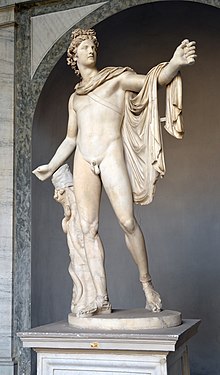
Apollo:One of the most important and complex of the Olympian deities in classical Greek and Roman religion and Greek and Roman mythology. The ideal of the kouros , Apollo has been variously recognized as a god of music, truth and prophecy, healing, the sun and light, plague, poetry, and more.
Apollo:reasonable<=>Dionysus:crazy
Greek tragedy:the oldest surviving form of tragedy—is a type of dance-drama that formed an important part of the theatrical culture of the city-state. We have complete texts extant by Aeschylus, Sophocles, and Euripides.
Confessions :The name of an autobiographical work, consisting of 13 books, by St. Augustine of Hippo, written in Latin between AD 397 and 400.
Why we have to learn to read:
To deliberately believe in lies while knowing they are false.
we must learn to read, to stimulate our imagination, to cultivate, our own consciousness, our own belief systems
訂閱:
意見 (Atom)